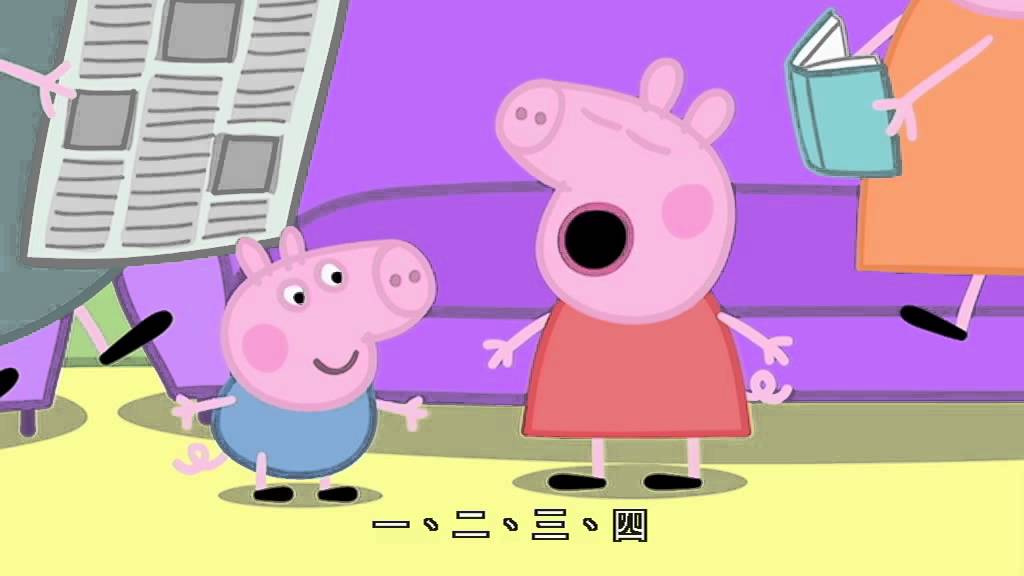It’s January again! And January has traditionally been the time for setting language-learning targets. And then February-December is the time for ignoring those goals and doing something else entirely!
You probably don’t remember, but in January 2020 I planned to work on both my Cantonese and Korean throughout the year. And indeed I did my best to do what I’d said I would do.
Giving up on Cantonese
For Cantonese, I found several resources for upper-intermediate learners trying to transition to native level texts/videos. The most important and most helpful was OPLingo/Language Tools’ Cantonese Conversations, 100 native-level dialogues with transcripts and audio. They’re not paying me for this endorsement, btw. I’m genuinely giving my thoughts on a bright oasis amidst a desert of useful Cantonese learner resources. I worked my way through several of those dialogues, and if time permits I’ll give a more detailed review another time.
 I also watched the usual “Peppa Pig in Cantonese” as well as other Youtube resources like “Cantonese with Brittany” and “100 Cantonese dialogues.” But after all that, I still don’t feel like I’ve gotten much better at Cantonese.
I also watched the usual “Peppa Pig in Cantonese” as well as other Youtube resources like “Cantonese with Brittany” and “100 Cantonese dialogues.” But after all that, I still don’t feel like I’ve gotten much better at Cantonese.
To be honest, my immersion is just too low right now. I barely watched any Cantonese movies or dramas last year, I rarely listen to RTHK these days, and the little Chinese manhua I did read raw was all in Mandarin. Furthermore, I don’t anticipate this situation changing much this year – I don’t plan to watch much in Cantonese, plus anything I do want to watch will probably be subtitled, so why should I push myself so hard to learn the original language?
That’s the problem, really. I’ve lost sight of my original motivation to learn Cantonese. Or rather I still remember it, but it’s not enough to sustain me any more. Originally I loved the sound of the language and the free-spirited culture of Hong Kong, so I just wanted to learn to speak it myself. That kind of loose motivation just isn’t enough to push me through the tough hurdles to true fluency.
Not to mention Hong Kong itself is on the decline… growing numbers of people speak Mandarin as a first language in Hong Kong, and the “free-spirited culture” is being rapidly destroyed by the Chinese Communist Party… but we can save that topic for another day.
Contrast all this with my Korean progress
 By the end of December 2020, I’d become capable of reading Korean manhwa in the raw. With copious lookups in Naver dictionary, of course (I’ll explain the actual process of reading a Korean manhwa with the Naver Dictionary app in a future post). But I still enjoyed reading the raws of My Husband’s Reversal and What it Takes to be a Villainess and then comparing them to the official translated version when they come out.
By the end of December 2020, I’d become capable of reading Korean manhwa in the raw. With copious lookups in Naver dictionary, of course (I’ll explain the actual process of reading a Korean manhwa with the Naver Dictionary app in a future post). But I still enjoyed reading the raws of My Husband’s Reversal and What it Takes to be a Villainess and then comparing them to the official translated version when they come out.
I’m really happy to discover that most of the time, there are few differences between what I think a manhwa said and what it actually said. That means I’m understanding most of what I read! It’s still a struggle because I forget vocabulary between chapters (I need to use an SRS) but it’s very rewarding.
Plus I’m currently working through Billy Go’s Korean Reading Made Simple and finding that I understand 80-90% of each text even before I read the explanations and translations provided. That’s a text aimed at intermediate learners, so I can proudly declare myself to be an Intermediate Korean Learner!! Yay! Of course I’m only halfway through the book, but I’m already feeling pretty good about myself.
I’ll be honest with you guys though: knowing Japanese and Cantonese really helps with Korean! Especially if you use hanja to help you learn vocabulary! I feel like I’ve said it before somewhere but I’ll repeat it: if you have a Japanese/Chinese background and are contemplating learning Korean, go for it! It’ll be much easier than you think!
Summary
The TL;DR is that Cantonese has gotten hard and unrewarding while Korean is still easy and very rewarding. Human Behavior 101 demands that I focus on the activity that is giving me the most dividends at this point in time.
My goal for Cantonese, therefore, is to shelve it, focus on Korean, then pick it up again in 2022 if I miss it. That said, I’m not 100% dropping it. I’d lose too much hard-earned proficiency that way. So I plan to watch at least one Cantonese movie/drama episode a month. And to read through at least one of the Cantonese Conversation dialogues a week. And of course I still love Cantonese pop music so I’ll keep listening to my collection. Apart from that, I won’t push myself.
For Korean, my goal remains unchanged. I want to read manhwa comfortably in the raw! Official translation companies like Tappytoon have gotten really good at releasing accurate, high-quality chapters in a timely fashion, no complaints there. BUUUUT in most cases they’re still behind the raws, and I’m greedy and don’t want to wait.

Besides, raw manhwa is just the first step in my ambitions to read Korean romance web novels in the raw! There are sooooo many out there that have just started being translated. There’s like 3 chapters here, 7 chapters there, 5 chapters of this other one. So frustrating!! And it’s not like there’s a regular schedule for most of these translations either. Groups just grab titles to keep them away from other groups, then hoard them for ages with scanty releases.
Plus sometimes, to be honest, the translations are completely crap. Sorry, it’s the truth. Even without access to the raws, the quality of the “English” and the nonsensical text alone tells you that it’s bad. Some of it is barely cleaned-up machine translation, and for some reason, Korean MTL is even worse than Japanese and Mandarin MTL. It’s nigh unreadable.
Sooo… for this year I’m going to focus on the manhwa and leave the novels alone. I want to get the point where I refer to a dictionary sparingly or not at all when reading basic romance manhwa of the sort I indulge myself in lately. I’m already close to that point, just need a lot more vocabulary and a little more grammar. We’ll review the situation again in January 2022 and take it from there, God willing. See you then!

